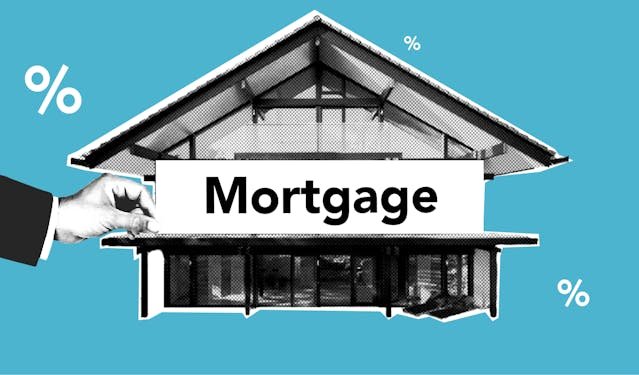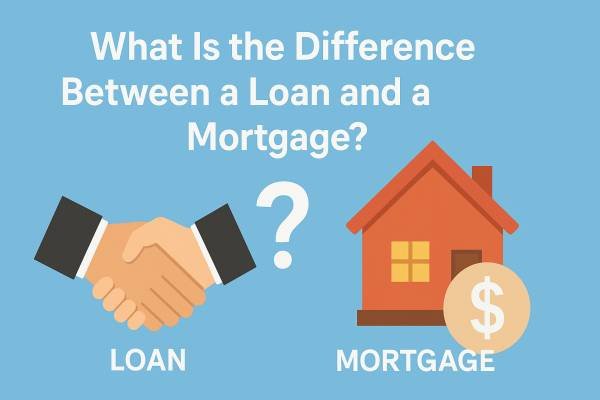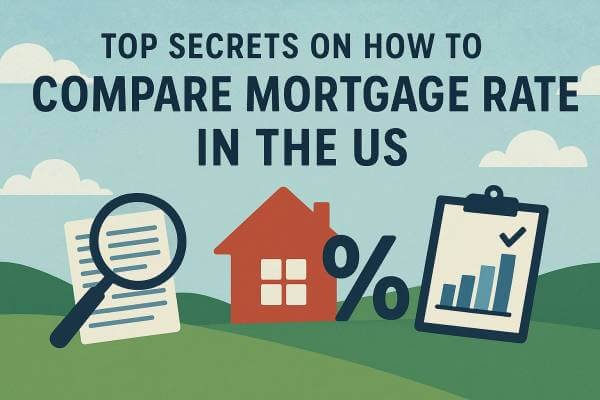How Does a Personal Loan Work? A Simple Breakdown for Beginners

Are you considering obtaining a personal loan, but unsure about its process? Many people hear the term tossed around when talking about paying off debt, covering big expenses, or even planning a wedding. But what does it really mean to get a personal loan, and how does the whole thing actually work?
If you’re just starting to explore your options, this guide is for you. From how the loan process starts to what lenders look for, to how you’ll pay it back, you’ll get a clear picture of everything.
We’ll also touch on loan interest rates, the difference between unsecured and secured loans, and how your credit score fits into the mix.
What Is a Personal Loan?
A personal loan is money you borrow from a bank, credit union, or online lender that you pay back in fixed monthly payments. It’s usually unsecured, which means you don’t need to put up any collateral like your car or house to get approved.
People use personal loans for all sorts of things. You might need to cover an emergency expense, consolidate credit card debt, fund a home project, or even take a much-needed vacation. The beauty of it is that you can use the money however you want.
When you take out a personal loan, you agree to borrow a set amount of money and pay it back over a certain number of months. You’ll also pay interest, which is basically the cost of borrowing. The interest rate you get usually depends on your credit score, income, and overall financial health.
A personal loan gives you a lump sum of cash upfront, and you pay it back gradually with interest. It’s simple and flexible and can be a great option if you need funds quickly and responsibly.
How Does a Personal Loan Work?
1. You apply for a loan.
First, you choose a lender and fill out an application. They’ll ask for some basic info like your income, employment details, and credit history. Some lenders offer prequalification, so you can see your potential loan terms without impacting your credit score.
2. The lender reviews your info
They’ll take a look at your credit score, income, and existing debts to decide if you’re a suitable candidate. This helps them figure out if you qualify and what interest rate to offer you.
3. You get approved and receive the money
If everything checks out, you’ll get approved and receive a lump sum of cash. Most personal loans range from $1,000 to $50,000, and the money usually shows up in your bank account in just a few days.
4. You start making monthly payments
You’ll repay the loan over a set term, usually anywhere from 12 to 60 months. Each monthly payment includes a portion of the principal (the amount you borrowed) and interest. The loan term and interest rate stay the same, so you know what to expect every month.
5. You finish paying off the loan
Once you’ve made your final payment, the loan is fully paid off. There are no additional monthly payments or accrued interest.
That’s it. A personal loan is straightforward: borrow money now, pay it back over time. It’s a helpful tool when used wisely, especially if you need quick funds and prefer predictable payments.
Who Can Qualify for a Personal Loan?
While approval isn’t guaranteed, there are a few key things lenders look for before saying yes.
1. Your credit score
The credit score is one of the biggest factors. Most lenders prefer to see a score of at least Some lenders offer options for bad or fair credit, even if the minimum score is 600. The higher your score, the better your chances of getting approved with a lower interest rate.
2. Steady income
Lenders want to know you can repay the loan. That means having a steady income from a job, freelance work, or other reliable sources. You don’t need to be rich, but your income should comfortably cover the monthly payments.
3. Low debt
They’ll also check your debt-to-income ratio. This shows how much of your income is already going toward other debts. If you’re maxed out on credit cards or juggling multiple loans, it might hurt your chances.
4. A good track record
Lenders will check if you paid your bills on time. They’ll also check if you have a good history of managing credit responsibly. Lenders love that. It shows you’re less of a risk.
5. Other documents
Some lenders may ask for pay stubs, tax returns, or bank statements. It’s just part of the process to make sure you’re financially stable.
The bottom line is that you don’t need perfect credit or a very significant salary to qualify for a personal loan, but showing that you’re responsible with money definitely helps. Please keep in mind that various lenders have distinct requirements, so it’s advisable to explore your options to find the best match.
Where Can You Get a Personal Loan?
You have many options. Numerous options are available.
1. Traditional banks
This is the go-to for many people. Big banks offer personal loans to existing customers, often with decent terms if you have a solid credit history. The downside is that banks can be a bit stricter when it comes to approval.
2. Credit unions
These are nonprofit organizations. They tend to offer lower interest rates and more flexible terms than big banks. If you’re a member of one, it’s definitely worth checking out. They’re also known for being more forgiving if your credit isn’t perfect.
3. Online lenders
These are super popular right now. Online lenders make it quick and easy to apply for a personal loan from the comfort of your home. Some offer funding in as little as 24 hours. Plus, you can compare rates and terms from multiple lenders without running all over town.
4. Peer-to-peer platforms
With peer-to-peer (P2P) lending, you borrow money directly from individual investors through a platform like LendingClub or Prosper. It’s a cool idea and often comes with competitive rates, especially if you’ve got good credit.
5. Apps and fintech services
Some apps and newer financial tech companies offer small personal loans or cash advances. Although the amounts are typically smaller, they can prove to be beneficial in emergency situations. All you need to do is to just watch the fees.
The key takeaway is for you not to settle for the first offer. Please consider comparing lenders, reviewing the fine print, and looking beyond the interest rate to understand the full cost. A little shopping around can save you hundreds or even thousands over the life of the loan.
The Pros and Cons of Taking a Personal Loan
Like anything in life, personal loans come with both perks and downsides. Before you commit, it’s smart to weigh both so you know what you’re getting into.
Pros of a Personal Loan
1. Flexible use
You can use the money for just about anything, be it debt consolidation, medical bills, home repairs, a big move, or even a wedding. Personal loans are highly versatile due to the absence of any restrictions.
2. Fixed payments
Most personal loans come with a fixed interest rate and monthly payment. That means no surprises. You’ll know exactly how much you owe each month and when your loan will be paid off.
3. No collateral needed
Most are unsecured loans, which means you don’t have to risk your house or car to get approved. That takes a bit of pressure off.
4. Quick approval and funding
Many lenders, especially online ones, can approve your loan fast, sometimes within a day. If you need cash quickly, a personal loan can deliver.
Cons of a Personal Loan
1. Interest rates can be high
If your credit score isn’t excellent, you could end up with a high APR (annual percentage rate). Some rates can reach 30 percent or more, which gets expensive.
2. Fees may apply
Watch out for origination fees, late fees, or prepayment penalties. Not all loans have them, but they can add up fast if you’re not careful.
3. Adds to your debt load
A personal loan is still debt. If you’re already juggling multiple payments or living paycheck to paycheck, adding another bill might not help your situation.
4. Credit impact
Applying for a loan involves a hard credit check, which can cause a temporary dip in your credit score. And if you miss payments, that’ll hurt even more.
Whether a personal loan is good for you largely depends on your situation. If you’ve got a clear plan to pay it back and use the money wisely, it can be a powerful tool. If not, it might just add to the financial stress.
How Personal Loan Repayment Works
Once you get your personal loan funds, the real part begins: paying it back. It’s pretty simple if you know what to expect.
1. Fixed monthly payments
Most personal loans come with a fixed repayment schedule, which means you pay the same amount each month until the loan is paid off. This makes budgeting easier since your payment won’t change over time.
2. Principal and interest
Your monthly payment includes two parts:
- Principal: the amount you actually borrowed
- Interest: the cost of borrowing the money
In the beginning, more of your payment goes toward interest. Over time, more goes toward reducing the principal.
3. Automatic payments help
Many lenders let you set up autopay, so your monthly payment gets pulled straight from your bank account. This helps you avoid missing a due date, and some lenders even give you a small interest rate discount for using it.
4. Watch for prepayment penalties
Some lenders charge a fee if you pay off your loan early. It’s called a prepayment penalty, and not all loans have one. If you think you’ll be able to pay off the loan ahead of schedule, make sure your lender doesn’t charge extra for that.
5. Late payments hurt
Missing a payment can lead to late fees and hurt your credit score. If you’re ever at risk of falling behind, contact your lender early. Some may offer hardship options or flexible payment plans.
6. Loan term affects your total cost
Longer loan terms mean lower monthly payments, but you’ll pay more interest over time. Shorter terms come with higher payments but less interest overall. It’s all about finding the right balance for your budget.
Smart Tips Before You Take Out a Personal Loan
Before you proceed with applying for that personal loan, please take a moment to ensure it is the right decision. A little planning now can save you a lot of money (and stress) later.
1. Know your why
First, ask yourself why you need the loan. Is it for something necessary like emergency medical bills or consolidating high-interest debt? Or is it for something that could wait? A clear purpose helps you stay focused and avoid borrowing more than you need.
2. Borrow only what you can repay
It’s tempting to take the full amount a lender offers, but that doesn’t mean you should. Stick to the amount you truly need. Remember, a personal loan is a commitment, and you’ll be paying it back monthly, with interest.
3. Check the total cost, not just the monthly payment
Low monthly payments can be misleading. Look at the APR and the total repayment amount over the life of the loan. A longer term may mean smaller payments, but more interest in the long run.
4. Compare, compare, compare
Don’t settle for the first lender you find. Get quotes from several lenders so you can compare loan terms, fees, and rates. Use online tools or marketplaces to accelerate the process.
5. Read the fine print
Indeed, examining the fine print may seem tedious, but it’s crucial to thoroughly read everything. Look for origination fees, late payment charges, prepayment penalties, or any other hidden costs that could sneak up on you.
6. Consider your credit score
If your credit score isn’t great, you may want to wait and improve it before applying. Even a small increase can lead to a much better rate. Or look for lenders that specialize in loans for fair or poor credit.
7. Don’t forget to budget
Prior to obtaining a loan, please ensure that the monthly payment aligns with your budget. Missing payments can hurt your credit and lead to extra fees, so it’s important to plan ahead.
A personal loan can be a smart financial tool, but only if you use it wisely. Think it through, shop around, and don’t rush the decision.
Final Thoughts
By now, you’ve got a solid grip on how a personal loan works. You know the basics, the benefits, the risks, and what to expect from the whole process. So the big question is, is it the right move for you?
A personal loan can be a wise choice if you require immediate funds for a significant expense, wish to reduce high-interest debt, or simply require some financial flexibility. It gives you a fixed amount, a set interest rate, and a clear repayment plan.
But like any type of borrowing, it comes with responsibility. Understanding the total cost, staying on top of payments, and ensuring the monthly bill fits comfortably into your budget are crucial.
So take a step back, look at your financial goals, and decide whether a personal loan supports or complicates them. If you conduct thorough research and make prudent borrowing decisions, a personal loan can serve as a valuable tool that enables you to progress confidently.
FAQs
1. Can I use a personal loan to pay off credit card debt?
Yes, and it’s actually one of the most popular reasons to get a personal loan. By consolidating credit card balances into a single loan, you could save money if the interest rate on the loan is lower than your card rates. Plus, you’ll only have one monthly payment instead of juggling multiple cards.
2. Will applying for a personal loan hurt my credit score?
When you officially apply, most lenders do a hard credit check, which can cause a small temporary drop in your credit score. But paying your loans on time can boost your credit in the long run.
3. How fast can I get a personal loan?
It depends on the lender. Traditional banks may take a few days, while some online lenders can approve and deposit funds within 24 hours. If you need cash fast, online lenders are usually your best bet.
4. Are personal loans only for people with good credit?
No. Some lenders offer personal loans for bad credit, but you might face higher interest rates. If your credit isn’t great, consider improving it first to qualify for better terms.
5. Is there a limit to how much I can borrow?
Yes, loan amounts typically range from $1,000 to $50,000, though some lenders go higher. The amount you’re approved for depends on your creditworthiness, income, and other factors.
6. Can I pay off a personal loan early?
Usually, yes. But watch out for prepayment penalties. Some lenders charge fees for paying off your loan ahead of schedule, so always check the fine print.

























